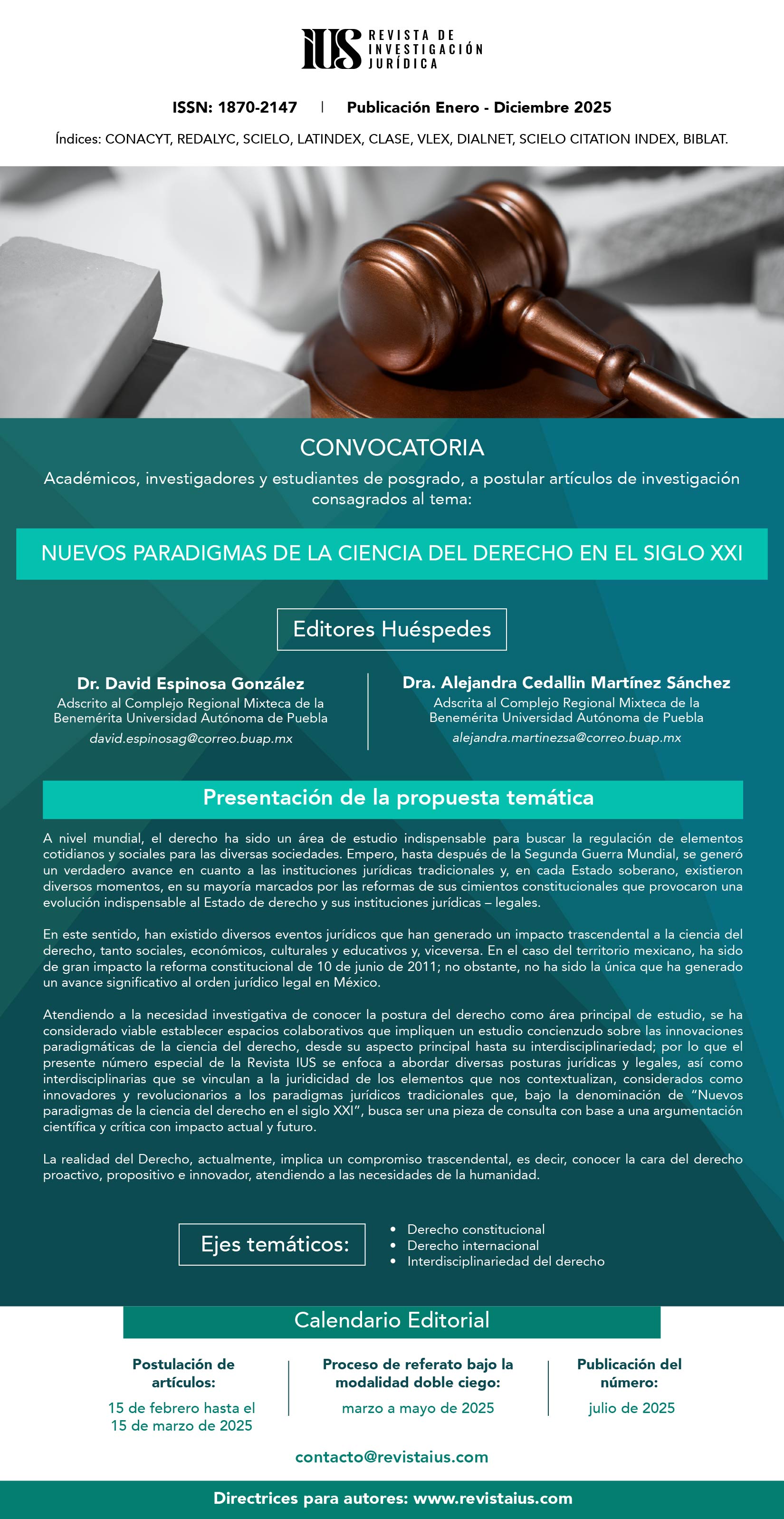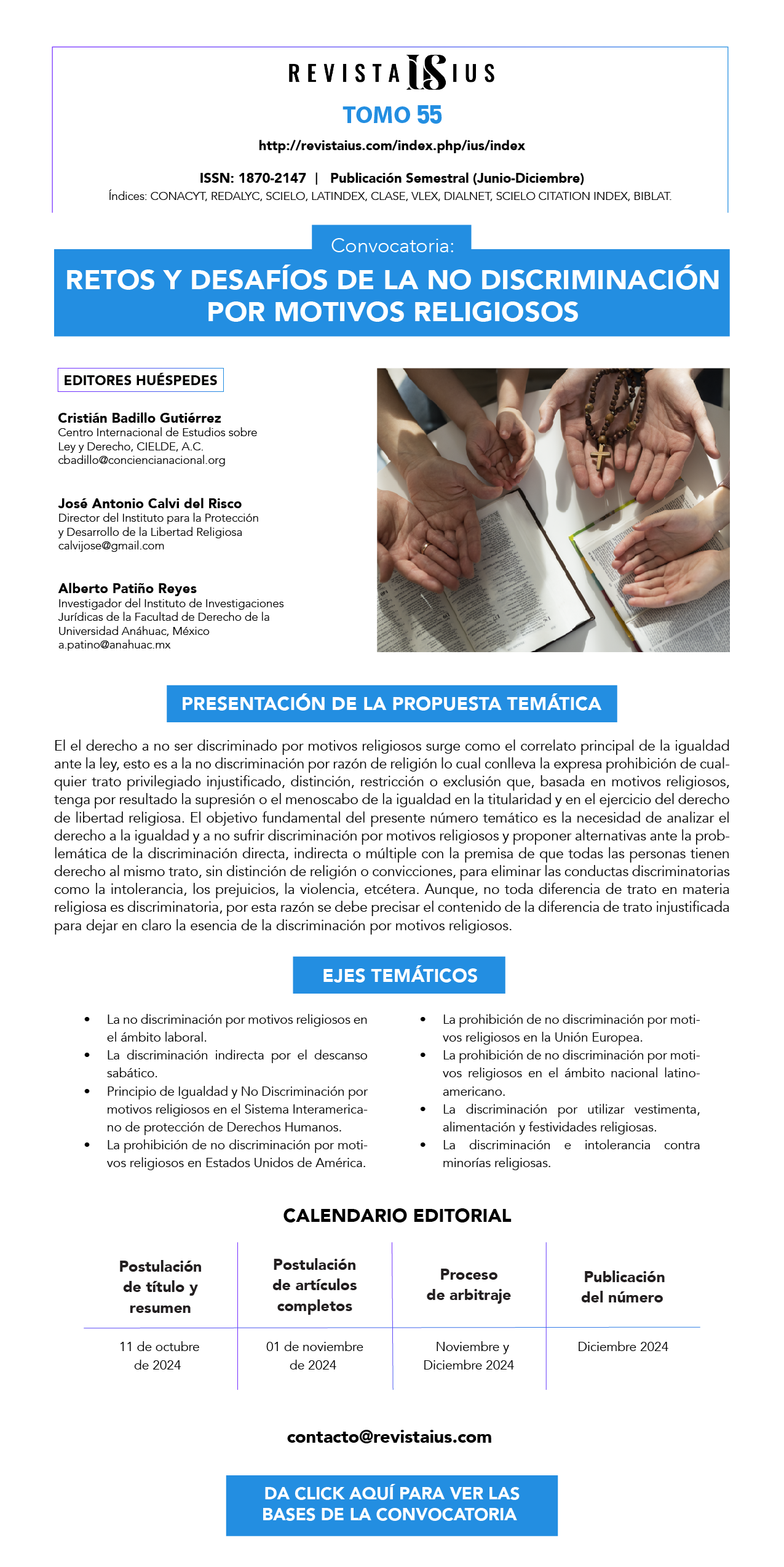Civil liability, punitive damages and intellectual property
DOI:
https://doi.org/10.35487/rius.v14i46.2020.515Keywords:
Derecho de AutorAbstract
La aplicación de la doctrina de los daños punitivos en el ordenamiento jurídico español no ha sido objeto, hasta ahora, de los encendidos debates que, en cambio, sí han generado otras figuras jurídicas cuya implantación en nuestro país también se pretende. Probablemente, la causa de esa aparente tranquilidad se debe a que la mayor parte de los tratadistas y estudiosos del tema se han inclinado por negar la posibilidad de su introducción en nuestro derecho, si bien existen opiniones, que no dudan en la conveniencia de su implantación y de su compatibilidad con las reglas tradicionales que sustentan nuestra responsabilidad civil. Partiendo de esa idea previa, el objetivo principal que persigue este estudio se centra en analizar si la teoría de los daños punitivos ha penetrado efectivamente en el ámbito del derecho civil español y, en particular, si podemos considerar que se encuentra recogida ya en la Ley de Propiedad Intelectual. Para ello es necesario analizar los argumentos a favor y en contra de su introducción y, en particular, si el art. 140 los prevé de manera implícita. Se hará referencia, asimismo, a la cuestión de los daños morales en este ámbito.
Downloads
Downloads
Published
Issue
Section
License
Revista IUS, published by the Legal Sciences Institute of Puebla A.C., is distributed under the Creative Commons Attribution-NonCommercial 4.0 International (CC BY-NC 4.0) license.
We authorize collaborators to upload a copy of their published work on their personal websites or any Open Access repository, provided that Revista IUS is specifically cited as the original source, indicating the year and issue of the respective example and adding the link to the webpage on which this publication can be freely consulted in toto and without charge: http://www.revistaius.com
Readers are free to:
Share, copy and redistribute the material via any medium or format.
The licensor cannot revoke these freedoms as long as you follow the license terms.
Under the following terms:
Attribution: You must give appropriate credit, provide a link to the license, and indicate if changes were made.
You may do so in any reasonable manner, but not in any way that suggests the licensor endorses you or your use.
NonCommercial – You may not use the material for commercial purposes.
If you remix, transform or build upon the licensed material, its distribution is not permitted.
Charges for managing articles: Revista IUS will not charge for receiving, processing or publishing articles (Article Processing Charge, or APC) submitted by authors.





